- S.D. Eibar ready for maiden La Liga outing
- SD Eibar stengthen ahead of debut La Liga season
- Can ‘Super Mario’ live up to expectations in Madrid?
- MAN IN THE GROUND – Brentford 0 – 4 Osasuna
- Historic Basque derby welcomes S.D. Eibar to La Liga
- Munich to Madrid, via Brazil – Tony Kroos
- Rakitic in Spanish Switch
- Can Spain find redemption in Rio?
- Viva Espana! A season of redemption for Spanish football
- From the old to the new: who can fill the void in years to come for La Roja?
EURO 1964: Fascism triumphs over Communism (with a little help from Catalunya and the Basque Country)
- Updated: 2 June, 2012
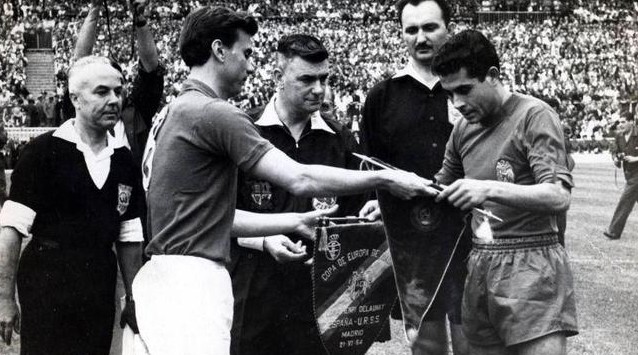
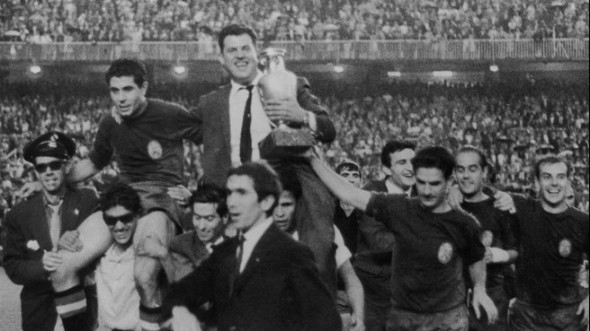 Uefa.com
Uefa.com
After years of underachievement in big tournaments, Spain were finally crowned champions of Europe in 2008, and of course went on to better this two years later in South Africa. However many fans forget that this was not the first time that La Roja had won a European Championship, although the competition which they won back in 1964 bore little resemblance to the current incarnation, and indeed was not even known by the same name as its modern day equivalent.
Twenty nine teams initially entered what was known as the UEFA European Nations Cup, but there was no group format, with all ties being played over two legs. The final stages were held in Spain and featured only four teams, with the matches being played over a period of just five days and using only the Bernabeu and the Camp Nou. There could hardly be a starker contrast between this tournament and the one scheduled for 2016 in France, which will feature 24 teams competing in ten stadia.
Having been selected as the host country from the four semi finalists, there remained a burning issue for Spain’s fascist dictator Francisco Franco to address – what would he do if Spain were to play the communist Soviet Union? During the qualifying stages of the inaugural tournament four years earlier, El Caudillo had refused to permit the Spanish side to travel to Moscow to play its quarter final tie, preferring instead to withdraw them from the competition. However this time the Soviet team had again qualified for the final stages, and indeed were the reigning European champions having defeated Yugoslavia in Paris in 1960. They duly won their semi final against Denmark, played at the Camp Nou in front of 38,000 spectators, and headed for Madrid.
Spain had progressed with relative ease through the qualifying stages, recording comfortable aggregate victories against Romania and the Republic of Ireland but only managing a 2-1 overall success against Northern Ireland. The hosts were thus expected to sweep aside the challenge of a Hungarian side far removed from that which had shone so brightly in the early years of the previous decade. However it took an extra time goal from Amancio Amaro to break their stubborn resistance, and thus the final which Franco had hoped so much to avoid became a reality.
Opinions vary as to how close El Generalissimo came to calling off the final, so enraged was he by the prospect of the Soviet state anthem being played and its flag flying in the Bernabeu. However there is little doubt that Jose Solis, one of his inner circle, played a key role in persuading him to let it go ahead.
The official crowd was 79,000, but unofficial estimates put it at nearer 125,000, and they saw a game punctuated by two early goals. Chus Pereda struck first in the sixth minute, but two minutes later Galimzyan Khusainov equalised thanks to some pretty awful goalkeeping by Jose Angel Iribar. The result remained in the balance until seven minutes from time, when a superb header by Marcelino flew past legendary Russian ‘keeper Lev Yashin.
So Fascism had triumphed over Communism, leaving the Hungarians (who were also a Soviet satellite state) to settle for third place after an extra time victory over the Danes watched by fewer than 4,000 in the Camp Nou. Many years later Marcelino was to lament the fact that he had not been part of a different era, commenting after the 2008 triumph: ‘now people value it much more because we are free’. However regardless of the oppressive regime which overshadowed the victory, this was still a notable success by a Spanish side which many mistakenly believe to have been laden with the stars of the all-conquering Real Madrid side of that time.
Alfredo Di Stefano and Ferenc Puskas had by then retired from international football, and indeed a ten year ban had been placed on selecting ‘naturalised’ Spaniards, meaning that prolific striker Laszlo Kubala was also not included in the squad. It must have pained Franco greatly that among the starting eleven that day were Barcelona stalwarts Pereda and Fuste, the proud Basque Iribar, and just two representatives from his beloved ‘merengué’.
48 years on, if La Roja do manage to make it to the final for the fourth time in their history, the atmosphere in the stands will inevitably be somewhat less politically charged, which will be an undoubted relief for those Spaniards old enough to remember that first taste of European success.

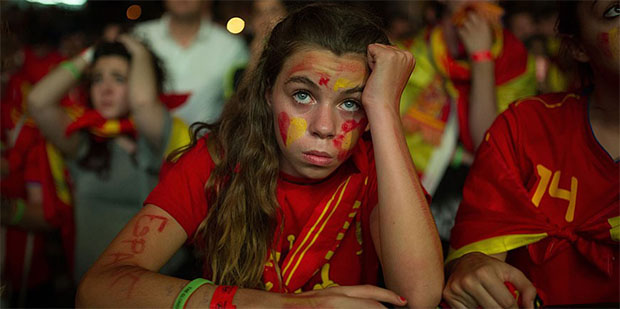
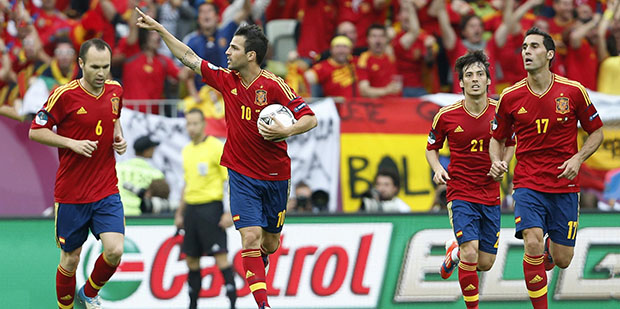
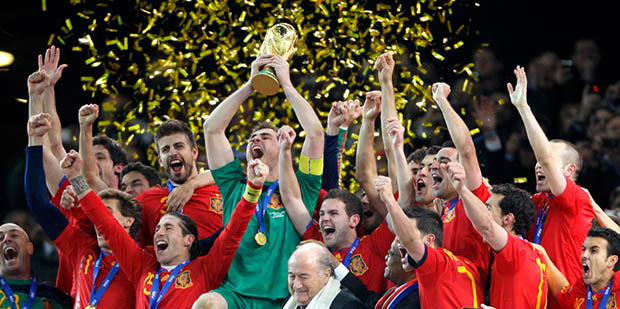


You must be logged in to post a comment Login